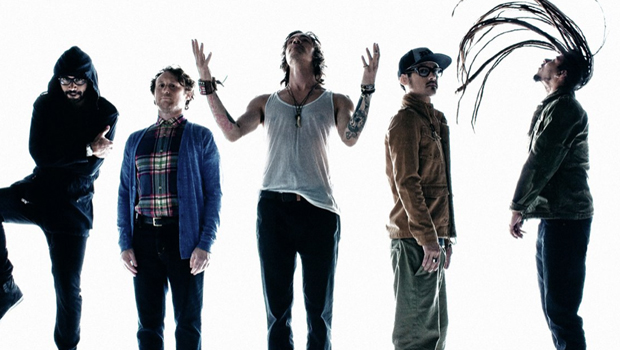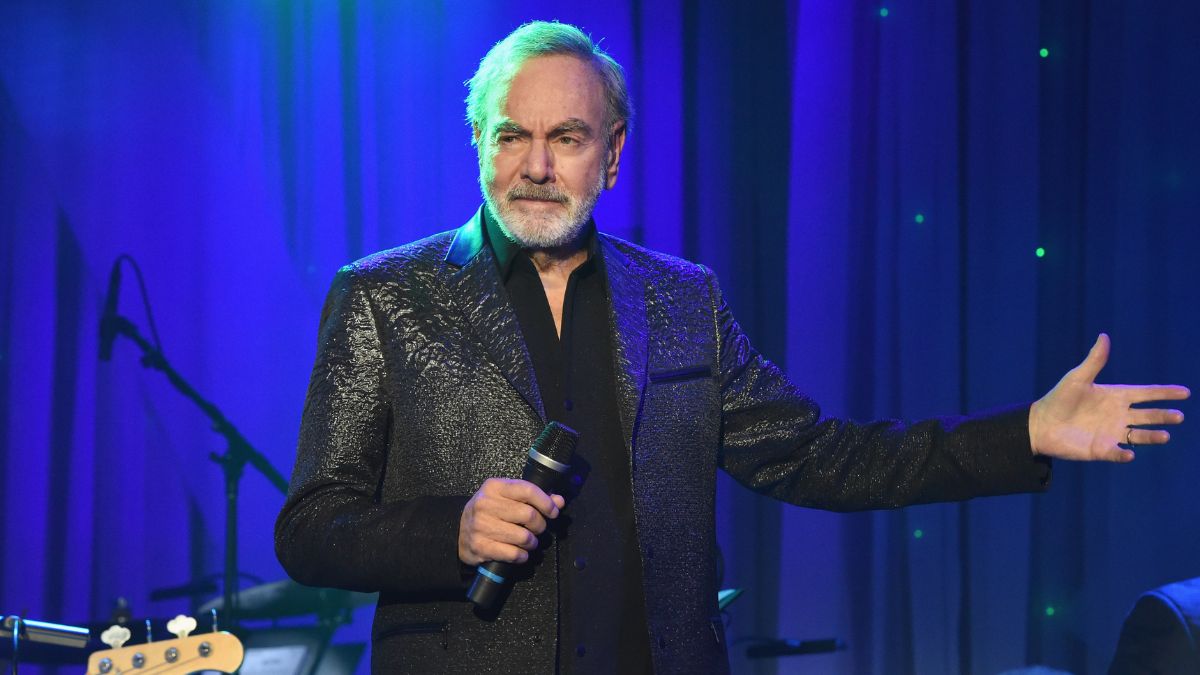Interview: Incubus Guitarist Mike Einziger Talks 'HQ Live,' the Changing Music Industry, Science and More

In the summer of 2011, as Incubus prepared to release their seventh studio album, If Not Now, When?, the band built their own performance space in a West Los Angeles warehouse and launched into something new: a participatory media exhibit and real-time performance and documentary project that allowed their fans to experience and interact with the band as they never could before.
For several nights, singer Brandon Boyd, guitarist Mike Einziger, keyboardist Christopher Kilmore, bassist Ben Kenney and drummer Jose Pasilaso participated in instructional clinics, Q&A sessions, video chats and fan-art exchanges. Each night, Incubus performed sets created by their fans, culminating with a full performance of If Not Now, When? on the final night.
Several elements of the experience were streamed online as fans joined in via Twitter, Facebook, YouTube and beyond. The experience was captured on HQ Live, the band's new CD/DVD, which was released in August (in various formats).
We recently caught up with Einziger, who discussed HQ Live, the changing music industry, science, gear and more.
GUITAR WORLD: What’s the story behind HQ Live? How and why did it come to be?
We were releasing a record last year called If Not Now, When?. When it came out, we were in kind of a compromised position with our record company. There was no leadership at the label, and executives were being filed in and filed out. We basically were kind of on our own at the time. So we came up with the idea of taking over a commercial space in Los Angeles and kind of creating a pop-up store. Instead of it being a pop-up store where we sell things, it would almost be like a pop-up concert venue where we would play a bunch of shows.
So we found a space; a lot of times it’s used as an art gallery. It was a big enough space where we could set up all of our equipment in the middle of the room, and then we arranged it so that the audience would be completely surrounding us and we would kind of be playing to each other in a circle. We did a week of different shows every day and then a series of interactive experiences with our audience where we would do drawings and things like that online.
All the latest guitar news, interviews, lessons, reviews, deals and more, direct to your inbox!
There were thousands and thousands of people that came to just be a part of what we were doing, and there were millions of people that tuned in online to be part of the performances and broadcasts. We did a combination of live concerts, clinics and a lot of interviews. We just thought it would be the most direct way we could reach out to our audience without there being any intervention from any third party. Just us and our audience, and giving them the music they want. We’re answering their questions, they’re talking directly to us in the most direct way possible.
So the box set and the collection of music we just released is really just the recordings of those sessions and those shows in that commercial space. It was just a really interesting way of releasing an album. All those shows and everything was surrounding the release of that record, and we didn’t really know when we started doing it that we would be releasing that as something for our audience. It came out really great. We didn’t fix anything, we didn’t change anything, we didn’t edit it, it’s "as is." We’re happy we were able to offer something like to the people who care about the music we make.
Have you seen that a lot in the music industry, where executives are coming in and out and bands of all different levels are going out on their own and doing things like this?
Yes. I mean the way the record industry has changed over the last decade has been really, really drastic. It’s totally different now than when we were younger. And people don’t buy albums the they used to. As a band, we make our living playing concerts. The record company, they make money selling albums. And so they’re all struggling. Hugely struggling. It’s kind of a sad situation for them, but at the same time it’s just the way the world has gone. I’m just thankful we have a really large audience all over the world, and I’m really thankful that when we play concerts, tens of thousands of people see them. I wake up every day thankful for that.
Outside of Incubus, you also compose a lot of your own music. Did you learn anything new on that score when you returned to school at Harvard University?
I never studied music before I went to school. I really went back to school to study the history of science. I figured I had the opportunity to study music when in school so I might as well take music classes as well. I never understood the theoretical side of music at all, or at least I didn’t realize that I did.
Studying music intellectually was really eye-opening. I realized I knew a lot more about it then I thought I did. Having spent decades making music and writing music, I just didn’t know what the terms were for certain things and the definitions of other things. But when you start digging into music and looking at how other people write music, and looking at all of the great music that’s been written over the course of history, I started to realize that maybe I knew a lot of things. I just didn’t know what they were called.
Studying music is particularly fascinating; studying music history is even more fascinating. It's kind of looking at how music has evolved.
Do you think what you learned at Harvard will forever change how you write and play with Incubus?
It’s really something I just wanted to do for myself. It doesn’t matter if it’s with the band. I went to school because I wanted to learn. Regardless of whether or not I ever wrote another note of music, I just wanted to have the experience of dedicating myself to subjects that really were fascinating to me. Most of all, the history of science. That’s something that has always been really important to me. I’ve never really been able to really dedicate my time and energy to it. That experience was really fulfilling.
Can you tell me a little bit about your gear? What did you play on HQ Live?
I think I was playing a Thinline Telecaster during the sessions. And I’m pretty sure that in the HQ session I’m using the Mesa Dual Rectifier combo amps. I’ve used those amps for a long time on and off. The Mesa amps are really diverse and give a wide array of sounds.
Do you guys have any plans for 2013?
No. We actually just finished 18 months of touring and we’re taking a break now. We’re not making plans for 2013. The album process and the writing process — it has to happen organically, and we have to be in the head space to do it. It’s actually a luxury we feel we’ve earned spending after so many years on the road and making records. We’ll take our time and when it feels right, we’ll do it.
For more about the band and HQ Live, visit incubushqlive.com and follow them on Facebook.
